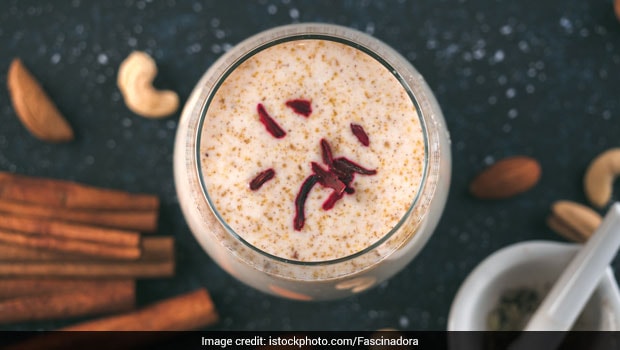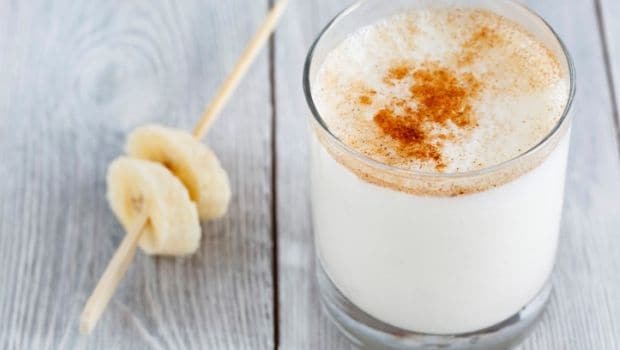A tall glass of haldi doodh sure has a special place in Indian hearts. A go-to beverage for all immunity and nutritious needs, there is perhaps no other milk beverage that has come close in terms of its popularity, except a glass of kesar doodh or saffron milk. Kesar or saffron is one of world's most expensive and rarest spices. Saffron is a spice derived from the flower of Crocus sativus, commonly known as the "saffron crocus". A mere pinch of the beautiful and delicate orange-crimson threads of kesar can turn any dish or beverage around both in terms of flavour and colour. It is said that saffron originated in Greece and was a popularly used spice in the Bronze age. Saffron travelled the world through trade and became a novel part of Indian cooking too. Safranal is one of the main antioxidants in saffron, which is packed with several health benefits. According to Bangalore based nutritionist Dr. Anju Sood, " Saffron has several antioxidants that can greatly benefit your health. Kesardoodh especially is quite popular with people for its delicious taste and nutrients. However, many a times, kesar doodh is very high on sugar. If you are preparing it at home, make sure you keep a check on the sugar levels."
Here are 6 benefits of kesar doodh or saffron milk that would make you want to empty a glass right away.
1. Protection Against Cold
Saffron is an effective tonic to treat cold and fever. According to Macrobiotic nutritionist and Health practitioner Shilpa Arora, saffron mixed in milk and applied over the forehead quickly relieves cold. It consists of various healing properties and is warm in nature that helps reduce the risk of catching a cold. (Also Read: Toss Them Away: 6 Foods That Aggravate Cold And Cough In Winters)

Kesar doodh may help cure cold and fever
2. Promotes Memory Retention
A glass of saffron milk could also help boost your memory retention. The secret lies in the tiny saffron extract, which according to Shilpa is useful in the treatment of age related mental impairment and boost memory. It is also believed that saffron can help prevent oxidative stress in the hippocampus, further enhancing learning and memory skills.
3. Relieves Menstrual Cramps
Traditionally, girls and women who have been facing tremendous menstrual cramps and abdominal pain are suggested to eat or drink things that are warmer. Saffron milk renowned for its rich anti-inflammatory properties is one warm and soothing potion women opt for during the times of heavy abdominal pain and menstrual cramps to get some relief.(Also Read: 7 Brilliant Home Remedies for Period Pain )

Saffron milk renowned for its rich anti-inflammatory properties
4. Helps Treat Insomnia
Have you been facing troubles in getting a good night's sleep? According to the book, 'Healing Foods', saffron contains potent antioxidants like crocin, safranal, and picrocrocin that can keep a host of your health woes at bay. "Added to tea or milk it can help treat insomnia and may help treat depression", notes the book. Saffron is also rich in manganese which is known for its mild sedative properties that help induce sleep.
(Also Read: Can Sleep Disorders Increase the Risk of Stroke? )

Added to tea or milk it can help treat insomnia and may help treat depression
5. Good For Heart
A pinch of saffron could also do wonders for your heart. It can stimulate circulation and prevents hardening of arteries (atherosclerosis) according to the book 'Healing Foods'. The active compound crocetin that is found in saffron has been known for its role for reducing the cholesterol level in the blood and preventing heart-related diseases to a large extent.

A pinch of saffron could also do wonders for your heart.
6. May Help Treat Asthma and Allergies
A glass of kesar doodh can help soothe joint pains, asthma and a few mild weather-related allergies too. "Its anti-inflammatory properties may be helpful in treating asthma and allergies," notes the book 'Healing Foods' in its section dedicated to saffron.
Kesar doodh is very easy-to-make and you don't even need many ingredients. Traditionally, saffron milk is prepared by steeping 2-3 strands of saffron in a cup of warm milk for about 5 to 10 minutes. To this milk you can add sugar or honey as per your taste. Some people also add a handful of nuts and aromatic spices to give the beverage a chunky-nutty flavour.
Here is a delicious recipe of kesaria doodh that you can try making at home.
About Sushmita SenguptaSharing a strong penchant for food, Sushmita loves all things good, cheesy and greasy. Her other favourite pastime activities other than discussing food includes, reading, watching movies and binge-watching TV shows.












